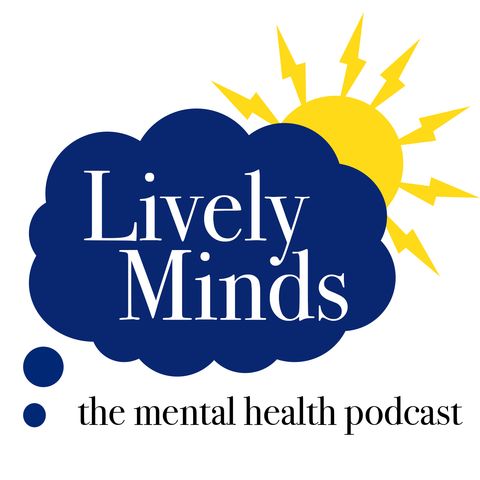S1E18 - Trauma and Neurodivergence, with Amanda Marples

Sign up for free
Listen to this episode and many more. Enjoy the best podcasts on Spreaker!
Download and listen anywhere
Download your favorite episodes and enjoy them, wherever you are! Sign up or log in now to access offline listening.
S1E18 - Trauma and Neurodivergence, with Amanda Marples
Description
What is the relationship between neurodivergence and trauma? In today’s episode we are chatting again to Amanda Marples, who is a writer, social worker and mentor with over twenty years...
show moreIn today’s episode we are chatting again to Amanda Marples, who is a writer, social worker and mentor with over twenty years experience in community mental health.
She has written for numerous magazines, is the author of "The Healing Workbook" and operates a mentoring service for neurodivergent writers called Reconcile Creative.
The last time we chatted to Amanda was in episode 14, when she spoke to us about trauma.
If you haven’t heard that episode then we recommend you go back and have a listen - in today’s episode we are going to be talking specifically about the relationship between neurodivergence and trauma.
Content Notes:
We will be discussing the close relationship and interplay between trauma and neurodivergence - including for autistic people and those with ADHD.
Neurodivergence is a term coined by sociologist Judith Singer in the 1990s, which promotes the idea that conditions, such as autism and ADHD, should be reframed as variations in human cognition rather than disorders or deficits.
Whilst we will be discussing correlations between trauma and neurodivergence it is important to make clear that we aren't suggesting that all neurodivergent people have experienced trauma, or that trauma always leads to neurodivergent development.
There will be brief references to sexual assault and bullying. We will also discuss the impact of early childhood trauma on brain development, and how having a higher sensitivity to sensory experiences can impact traumatic memories.
It is also important to say that Neurodivergent identity has become a hugely helpful way for large numbers of people, including those with mental health problems, to reframe and understand their experiences in a more positive way.
Take care whilst listening, and if anything comes up that you need help with right away, find signposting on our website anyamedia.net/livelyminds
Links to more information about topics raised in the podcast discussion.
Please note: these links are provided in good faith and Lively Minds Podcast is not responsible for the content of third party websites.
- Amanda's article about the relationship between trauma and neurodivergence
- The research Amanda mentioned that suggests neurotypical brains are more alike than neurodivergent brains.
- Is it ADHD or Trauma? Why the symptoms are often confused, and how to avoid a misdiagnosis
- Post Traumatic Stress Disorder in Autistic People
- Neurodiversity and Bullying
- Evidence that 9 out of 10 Autistic Women have been Victims of Sexual Violence
- Childhood adversity may increase the risk of neurodevelopmental conditions, including ADHD
- Trauma exposure in children with and without ADHD: prevalence and functional impairment in a community-based study of 6–8-year-old Australian children
- Article about the impact of trauma on the developing brain
- Another article about how stress can impact brain development
- Scattered Minds - book by Gabor Mate
Information
| Author | Ellie Page & Will Sadler |
| Organization | Will Sadler |
| Website | www.anyamedia.net |
| Tags |
Copyright 2024 - Spreaker Inc. an iHeartMedia Company
